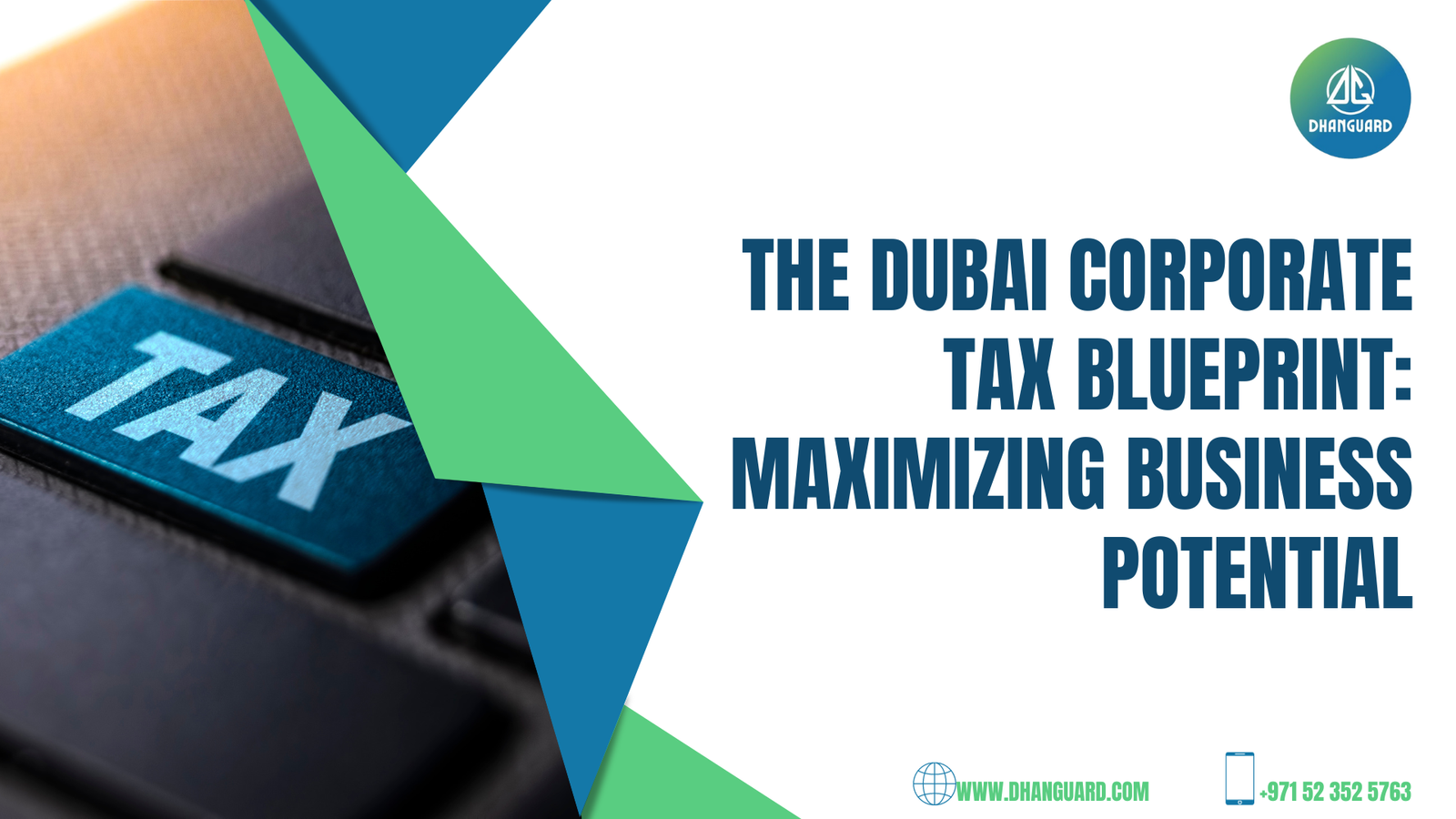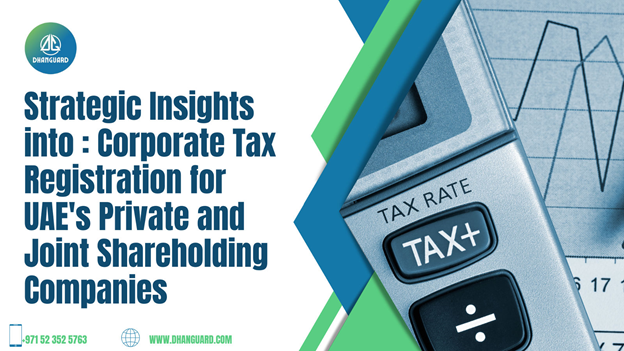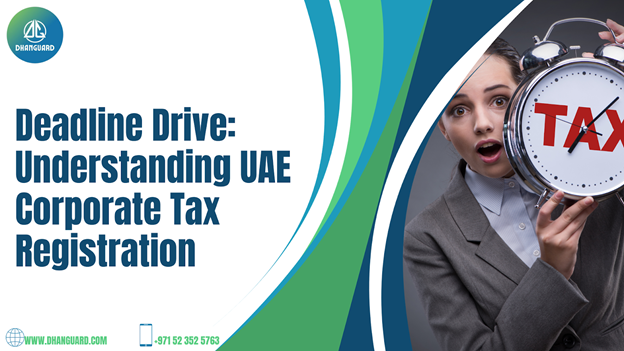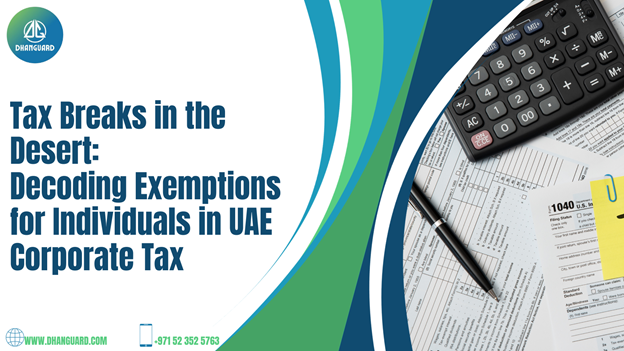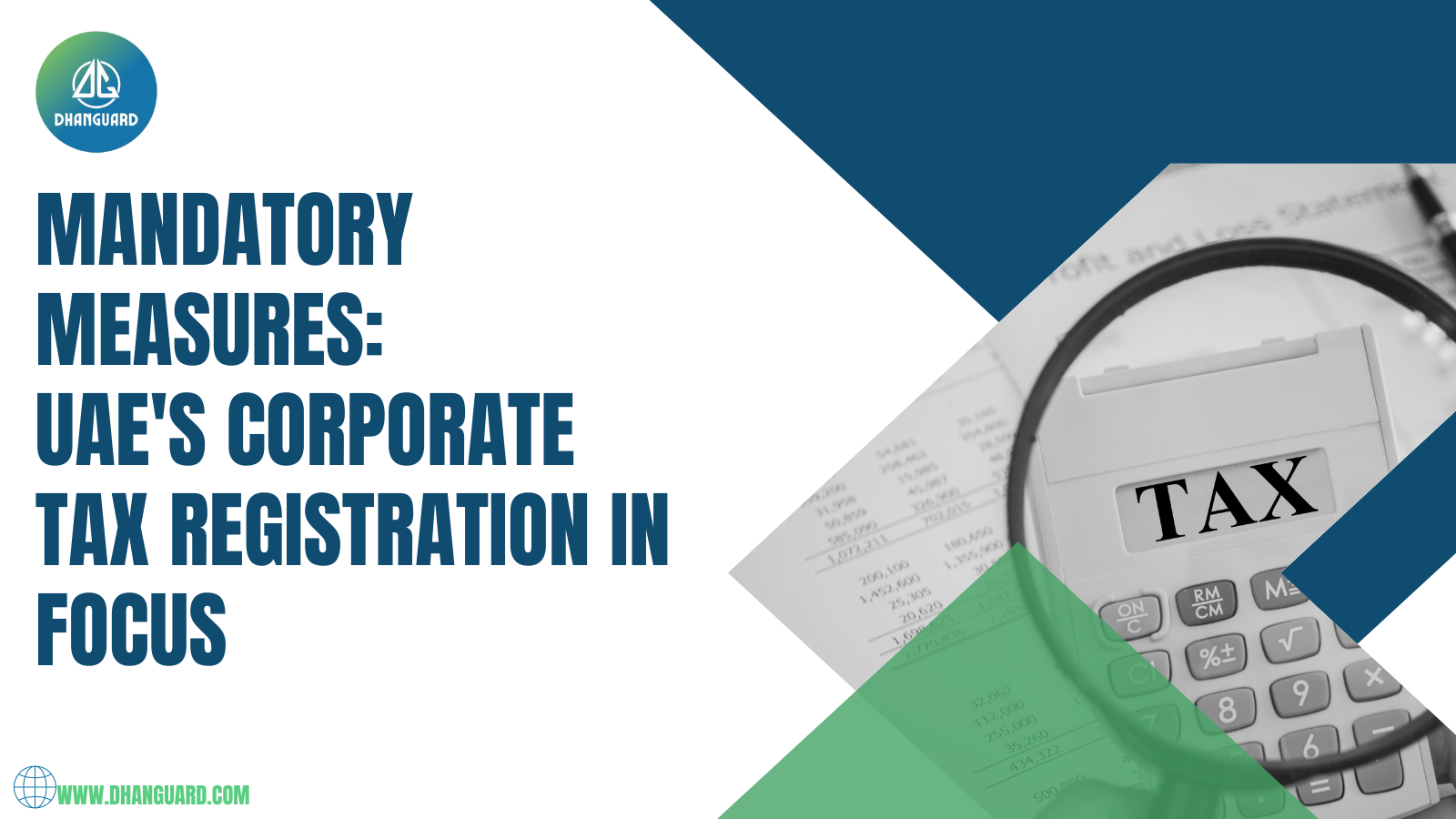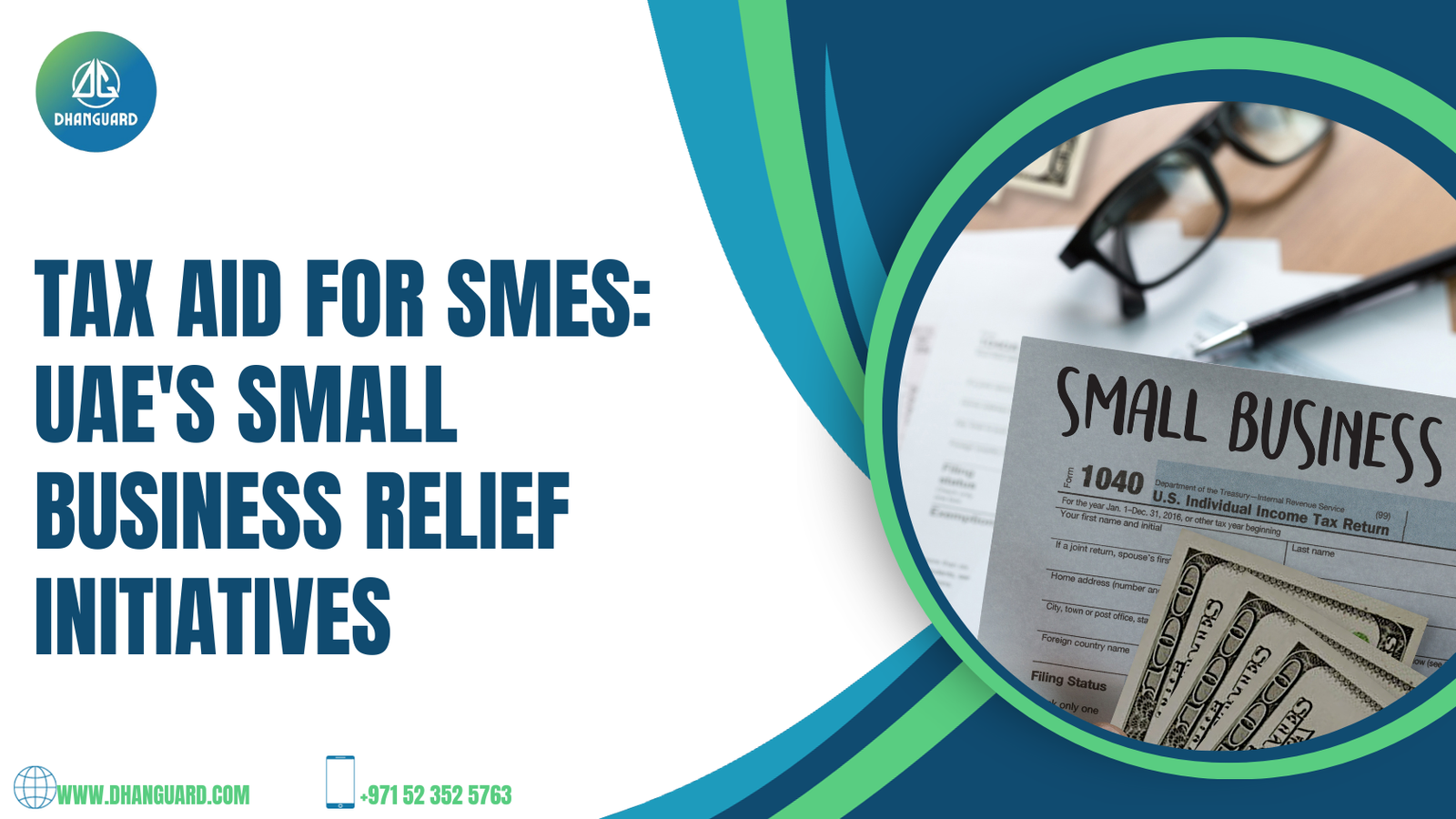Companies operating in Dubai will be liable to UAE Corporate Tax beginning with their first financial year beginning on or after June 1, 2023, per UAE Federal Decree-Law No. 47 of 2022. The UAE's adoption of a federal company tax seeks to accelerate the strategic goal of development and transformation while solidifying the nation's standing as a global hub for enterprises and investment. Businesses must comprehend the idea of corporate tax because it is new in the United Arab Emirates. Therefore, companies operating in Dubai should use Dhanguard's services to ascertain taxability and guarantee adherence to corporate tax legislation. Now, let's get going.
What is a Corporate Tax?
A direct levy on the net income or profit of businesses and other entities engaged in commerce is known as corporate tax. Dubai also provides several tax breaks and incentives to entice international investment and promote economic expansion.
Dubai Corporate Tax Overview
A covered person's income from the sale of goods and services is subject to UAE Corporate Tax beginning on or after June 1, 2023. The law deals with taxing commercial profits (both domestic and foreign) made by UAE residents. It applies to both individuals and corporate entities. On the other hand, certain income would not be subject to corporate tax.
Who is Accountable for Corporation Tax in the UAE?
Businesses with a net taxable profit above 375,000 AED are subject to corporate taxation and must pay a portion of their net profit as corporate tax.
What is the UAE's corporation tax rate?
The corporation tax rate is 9% of the companies' net profit. To assist startups and small enterprises, the corporate tax rate will be 0% up to a net profit of 3,75,000 AED.
The Corporate Tax Implementation Goals
The following are the main goals behind the UAE's implementation of corporate tax:
-
Global Business Hub: Maintaining its standing as the leading international centre for trade and investment.
-
Accelerating development: to achieve strategic goals is known as development acceleration.
-
International Standards: Reiterating the resolve to follow global guidelines for tax transparency and stopping abusive taxation practices.
Corporate Tax's Scope in the UAE
Corporate tax in Dubai will affect several organizations and people, such as Any company or person operating in the UAE under a commercial license.
-
Businesses operating exclusively in the UAE's free zones are entitled to certain advantages if they follow the regulations.
-
Foreign companies and people doing regular business or commerce in the United Arab Emirates.
-
Activities related to banking, real estate management, building, development, agency, and brokerage.
Corporate Tax in Free Zones
Free zones have numerous benefits, including 100% foreign ownership, 100% exemptions from customs and VAT, 100% returns on capital and profits, and exemptions from corporate tax. The UAE government may now achieve its goal of economic changes through growth because of the new Corporate Tax Law, which acts as a multiplier by ensuring that certain Free Zones' tax exemptions are met.
Requirements for tax exemptions in Free Zones may conflict with other features of the current legislation, such as how they affect the Economic Substance Regulations (ESR). That is still up for debate regarding future modifications to the UAE ESR when corporate taxes are implemented.
Corporate Tax Registration in Dubai
Dubai's Corporate Tax Registration requires all taxpayers to register for UAE Corporate Tax and get a Corporate Tax Registration Number for efficient tax administration. Certain Exempt Persons may get registration requests from the Federal Tax Authority. Companies have to manage reporting and compliance requirements for taxes, such as:
-
Maintaining accurate financial records, such as accounting books, invoices, receipts, and so on, is essential to effective financial record keeping.
-
Adherence to International Financial Reporting rules (IFRS) or other applicable accounting rules for yearly financial statements is considered compliance with international accounting standards.
-
Annual Return Filings: Annual returns must be filed with the tax authorities for accountability and openness.
-
License Renewal: An essential component of corporation tax registration is the periodic renewal of licenses with the appropriate authorities. Adhering to all applicable regulations, including securing the required licenses and permissions, is crucial for companies functioning within the law.
Dubai's Corporate Tax Exemptions
To comply with double taxation avoidance treaties (DTAs) with other nations, the UAE government offers tax exemptions and incentives to enterprises in certain areas. The goal of these exemptions is to shield UAE enterprises from paying twice their income. Certain rental receipts from UAE real estate investments, dividend income, and income from individual work are not taxable. Businesses that harvest natural resources, dividends from qualifying shareholdings, and capital gains are all excluded from corporate taxation. Several requirements must be met for intragroup transactions and reorganizations to be eligible for exemptions.
Financial Year in UAE
The fiscal year in the United Arab Emirates runs from January 1 to December 31. However, some companies might have the flexibility to align their financial year differently based on their specific requirements and approvals from regulatory authorities.
For a more detailed understanding of Dubai's corporate tax regulations, it's recommended to consult with Dhanguard’s professional advisors well-versed in UAE's taxation laws.
What different kinds of businesses or incomes are not covered by corporate tax?
All enterprises that make more than the 3,75,000 AED profit threshold are required to pay corporate tax. Nonetheless, some forms of income or business are not subject to corporate tax. The list of businesses or income that is tax free in Dubai provided below:
-
Corporate tax will not apply to individuals. Thus, corporate tax will not apply to any income derived from employment, real estate, stock investments, or other sources of personal income unconnected to a trade or activity in the United Arab Emirates.
-
Not relevant to foreign investors who don't conduct business in the United Arab Emirates
-
Businesses in the United Arab Emirates that own qualifying shares are exempt from corporate tax on capital gains and dividends.
-
Not applicable to qualifying restructurings and intragroup transactions
Conclusion
Business owners now must understand corporation tax in the United Arab Emirates; it is no longer a choice. We at Dhanguard are ready to guide you through the nuances of Dubai corporate tax laws. Businesses can ensure their compliance and avoid possible financial consequences by thoroughly understanding these tax requirements and, where needed, obtaining our professional help. With the help of Dhanguard, stay compliant, and prosper in the dynamic business environment of the United Arab Emirates.
DhanGuard: All-in-One Solution for Business Setup in Dubai, UAE
DhanGuard is your ultimate one-stop solution for all your business needs. Whether you’re planning to set up a new company or expand your existing business in the UAE, we’ve got you covered with our comprehensive range of services. From Business Setup in UAE and Company Formation in Dubai to managing your financial and legal compliance, we provide everything you need under one roof.
Our services include:
- Company Formation in UAE and Dubai
- Opening a Business Bank Account in UAE and Dubai with a 99% success rate
- VAT & Corporate Tax Compliance
- Accounting, Bookkeeping, and Auditing Services
- Trade License Renewal
- Golden Visa Assistance
Let DhanGuard make your journey of Business Setup in Dubai seamless and hassle-free!

